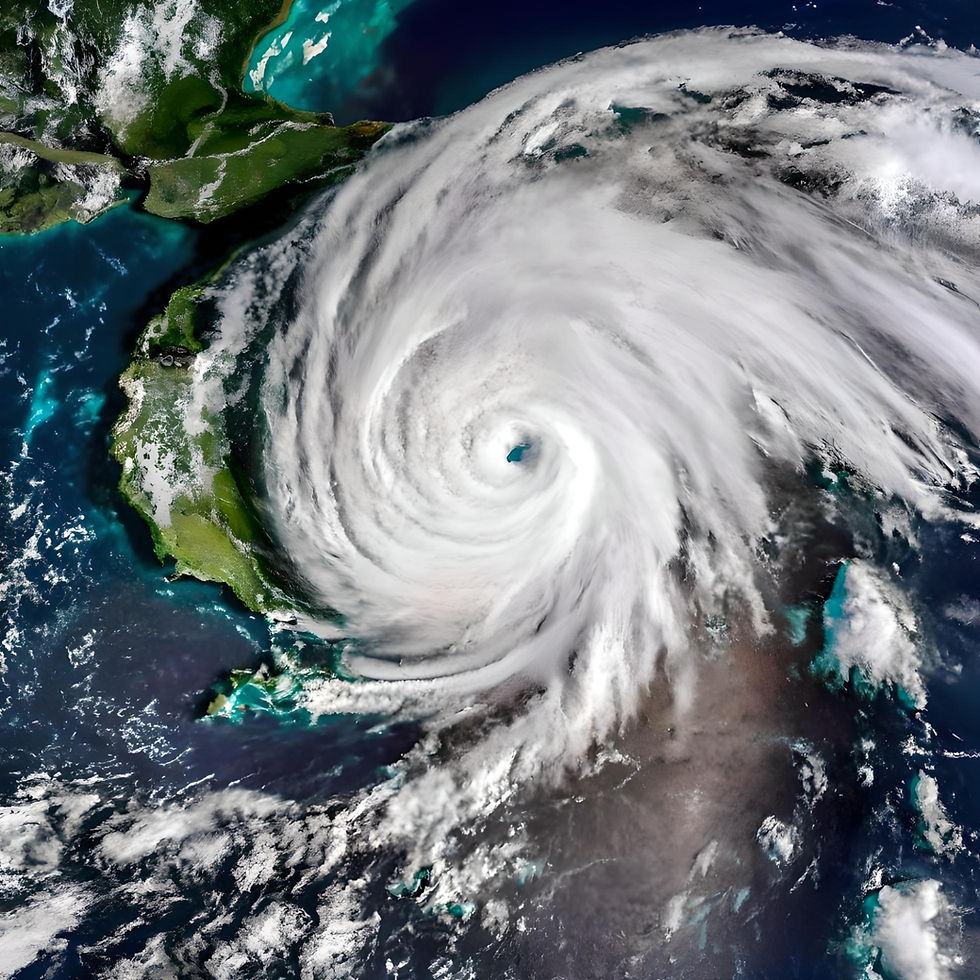WILL THE COP 30 TURN PROMISE INTO PROOF?
- Gurleen Kaur | Youth 4 COP Participant
- Nov 21, 2025
- 3 min read
Climate change negotiators are heading to the 30th UN Climate Change Conference (COP 30) in Belém, Brazil, after a year that saw tense geopolitical showdowns, devastating climate change-fuelled events and the announcement that the average global temperature has exceeded 1.5°C above its pre-industrial level over a calendar year. The saying goes that "Life begins at 30", and we wait to see if Brazil can inject more impetus into the COP meetings. Evidence of rising impacts of warmer temperatures at the 10th anniversary of the Paris greement can be used to propel transition finance after last year's messy squabbles on terminology. UNEP recently highlighted the "yawning gap" in adaptation finance for developing countries, at a time when we saw another "unprecedented" disaster in the Caribbean. Given the location by the world's largest rainforest, it is a significant opportunity to shed a light on biodiversity risks in the supply chains.

Every person carries a unique assignment in this world; some are called to build companies, others to work within them and drive their missions forward. Realizing this difference has changed the way I think about and approach every opportunity. As a Youth for COP and participant to The Climate Reality Project for me, it’s not just about representation; it’s about alignment, ensuring that each step contributes to the purpose I was created for and to the vision I’m building through clean energy and innovation. Opportunities like COP30 remind us that climate action is not a competition but a collaboration of many callings working toward one goal of a sustainable planet for all.
2025 marks another milestone for the Paris Agreement. Countries are supposed to submit the third round of so-called nationally determined contributions (NDCs) to the agreement. These are the national climate plans that countries put forward every 5 years. The expectation is that these plans are progressively more ambitious—that they constitute parties’ best efforts and they should be informed by the outcomes of the global stocktake, which is this process of taking stock of where we’re at in implementing the goals of the Paris Agreement.
The new NDCs were supposed to be submitted in February 2025. However, few countries had submitted by that time. More arrived over the summer, but some big emitters have yet to submit them formally. A big question is how well these national climate plans are designed. Looking at the outcome of the first global stocktake, the expectation is that these NDCs are aligned with a 1.5°C pathway and that they cover all sectors and greenhouse gases. Another key question is how this third round of NDCs responds to the calls formulated in the global stocktake decision to transition away from fossil fuels and ramp up renewable energy capacity. Whether the NDCs will be formally discussed in Belém remains to be seen. While there’s been media attention on the submission process and several country coalitions are calling for a space to reflect on this latest round, it might surprise some people to hear that NDCs are not technically on the agenda in the negotiations at the moment.
As CoP-30 nears, efficient and credible carbon trading in India can give us a chance to lead a global climate agenda that’s fair to everyone. Under the leadership of Prime Minister Narendra Modi, India is redefining the global climate narrative by embedding sustainability and innovation in its growth story. As India advances towards its net-zero 2070 target, low-carbon technologies are no longer peripheral, they are emerging as the backbone of a new economic model. By tackling legacy inefficiencies, investing in innovation and scaling homegrown services in clean energy and unexplored reserves, India is cutting emissions while unlocking economic value.
The transition from COP 29 to COP 30 represents a critical juncture for global climate action. While COP 29 laid groundwork for finance and adaptation, COP 30 must deliver bolder commitments to meet the Paris Agreement’s goals. Key actions should include:
Increasing climate finance to meet developing nations’ needs.
Strengthening NDCs with clear, sector-specific targets for emissions reduction and adaptation.
Promoting transparency and accountability in carbon markets and financial flows.
Integrating culture and storytelling to inspire public engagement and behavioural change.
India's transition to cleaner energy presents both challenges and opportunities. Swift and substantial investments are necessary to reduce carbon emissions. However, embracing and accelerating this transition can stimulate job creation, improve energy security and reduce greenhouse gas emissions. Thus, delay is not an option. Parties at COP30 must ensure their actions and decisions are met with urgency. Against this backdrop, India’s climate actions resonate globally. CoP-30 will serve as a pivotal moment in international negotiations and a strategic opportunity for India to accelerate its ambitions through robust carbon markets, digital verification of offsets and the adoption of transformative clean technologies.










Comments